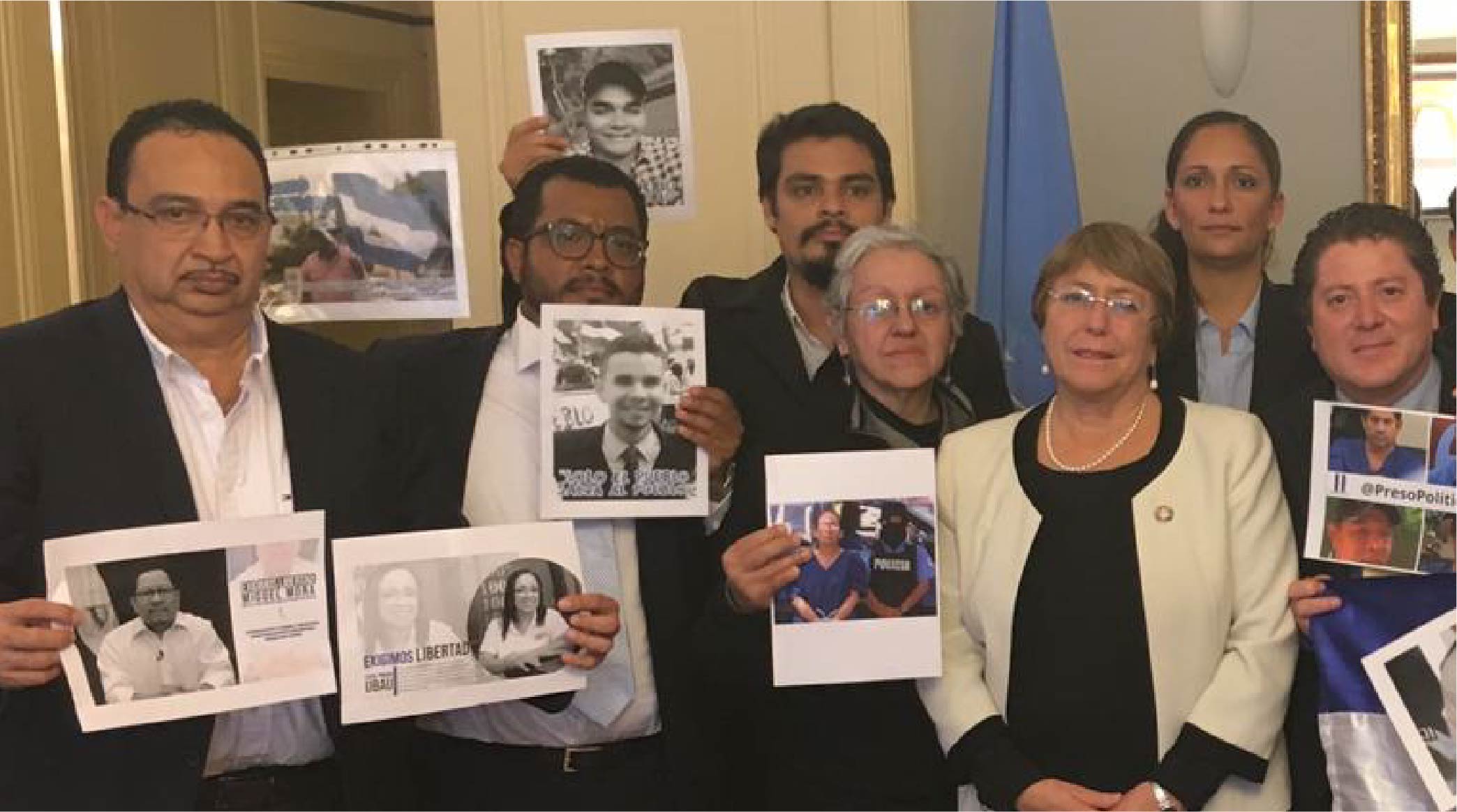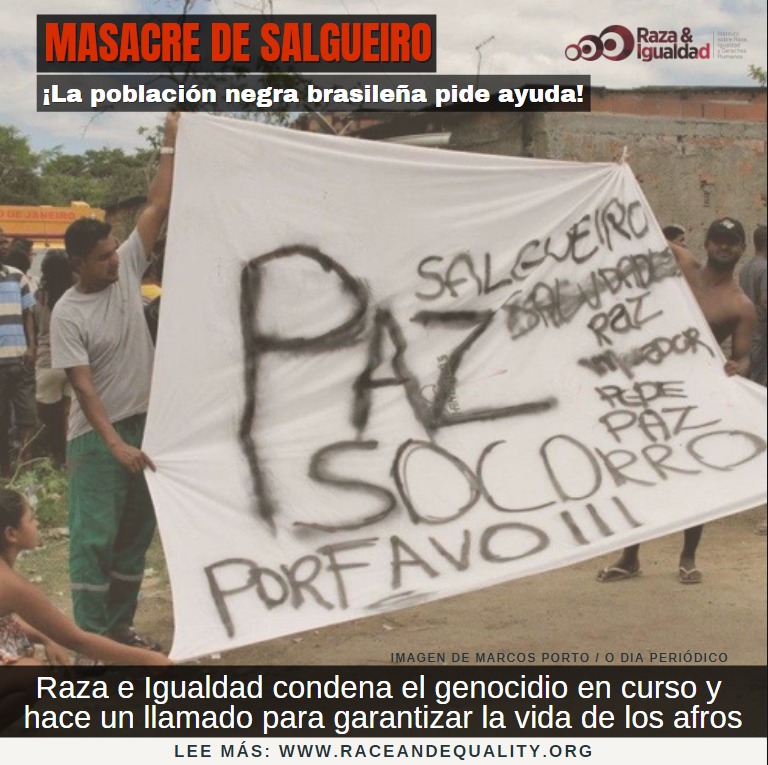Nicaraguan Delegation Meets with United Nations High Commissioner for Human Rights Michelle Bachelet
The International Institute of Race, Equality, and Human Rights (Race & Equality) facilitated a private meeting on February 1 between 10 representatives of Nicaraguan civil society organizations and United Nations […]

The International Institute of Race, Equality, and Human Rights (Race & Equality) facilitated a private meeting on February 1 between 10 representatives of Nicaraguan civil society organizations and United Nations High Commissioner for Human Rights Michelle Bachelet.
In the meeting held in Geneva, Switzerland, Nicaraguan human rights defenders presented a report detailing the grave state of human rights in the country following the persecution of activists, women, journalists, independent media outlets, youth, political prisoners, and human rights defenders by the government of Daniel Ortega and Rosario Murillo.
“We have met with the High Commissioner. She listened to our requests and expressed her sincere concern regarding the situation in Nicaragua and her commitment to include and note the situation that is transpiring in all of her interventions and contribute in any way she can to bring about improvements in the conditions in the country,” affirmed Ana Quirós, the CISAS human rights defender who was recently arbitrarily thrown out of Nicaragua. Likewise, Heydee Castillo, Director of the Instituto de Liderazgo de Las Segovias [Las Segovias Leadership Institute], said, “We were able to tell her verbally what we have experienced and what is being experienced by the people of Nicaragua, the levels of criminalization, violence, [and] crimes against humanity committed . . .”
Eight of the 10 civil society organizations present in the meeting have been arbitrarily censured by the current government following its decision to cancel their legal status in retaliation for complying with their missions and objectives: attending to the populace within the context of the Nicaraguan crisis. It is thus that Luciano García of Hagamos Democracia [Let’s Build Democracy] expressed, “The most important thing was that we were able to bring her up-to-date in a timely manner regarding the abuses being committed by the regime against all Nicaraguans and all civil society organizations, and she [Michelle Bachelet] listened to our demands and is extremely concerned and surprisingly well-informed about the case of Nicaragua.”
One of the requests the representatives presented to Commissioner Bachelet related to asking the State of Nicaragua to stop the repression, persecution, and criminalization of the populace, human rights defenders, indigenous peoples, social [and] political leaders, and journalists. They additionally called on the State to provide guarantees for the prompt and safe return to the country of the human rights defenders who were forced into exile as a result of the criminalization and prosecution, as well as the reinstatement of the arbitrarily-canceled (illegally withdrawn) legal status to human rights and civil society organizations.

Throughout the meeting, the High Commissioner displayed great sensitivity and commitment to the situation. Anibal Toruño of Radio Darío noted that the meeting provided not only a space for them to discuss the national reality, but also a chance to find other partners with whom to promptly resolve the crisis. “It was an encouraging moment: we received the full support of the High Commissioner. A window, a hope, and of course, the possibility of finding partners who can help us resolve the crisis we are currently experiencing in Nicaragua.”
Mónica Baltonado, representative of Fundación Popol Na [Popol Na Foundation], emphasized how important it was to tell the Commissioner about the pain that is being inflicted not only on human rights defenders and activists, but also on the nation: “It is of transcendent importance for the Nicaraguan organizations as well as for the entire society. First, because we were able to directly communicate to her the pain and suffering of the Nicaraguan people and the enormous concern we have, but above all, the sense of urgency to find a solution in the shortest period of time possible.”
Since April 2018, Nicaragua has been submerged in a grave human rights crisis that has become ever more acute, insomuch as the causes that provoked it have not been addressed, nor has the Nicaraguan people’s demand for justice and democracy been heeded. In recent months the government has implemented a strategy of dismantling all spaces of criticism, while the violence is manifested in a more selective manner to target human rights defenders. To date, the Nicaraguan government’s repressive actions have produced 325 assassinations, more than 2,000 injured individuals, 767 political prisoners, and more than 80,000 people have been forcibly displaced to Costa Rica.

